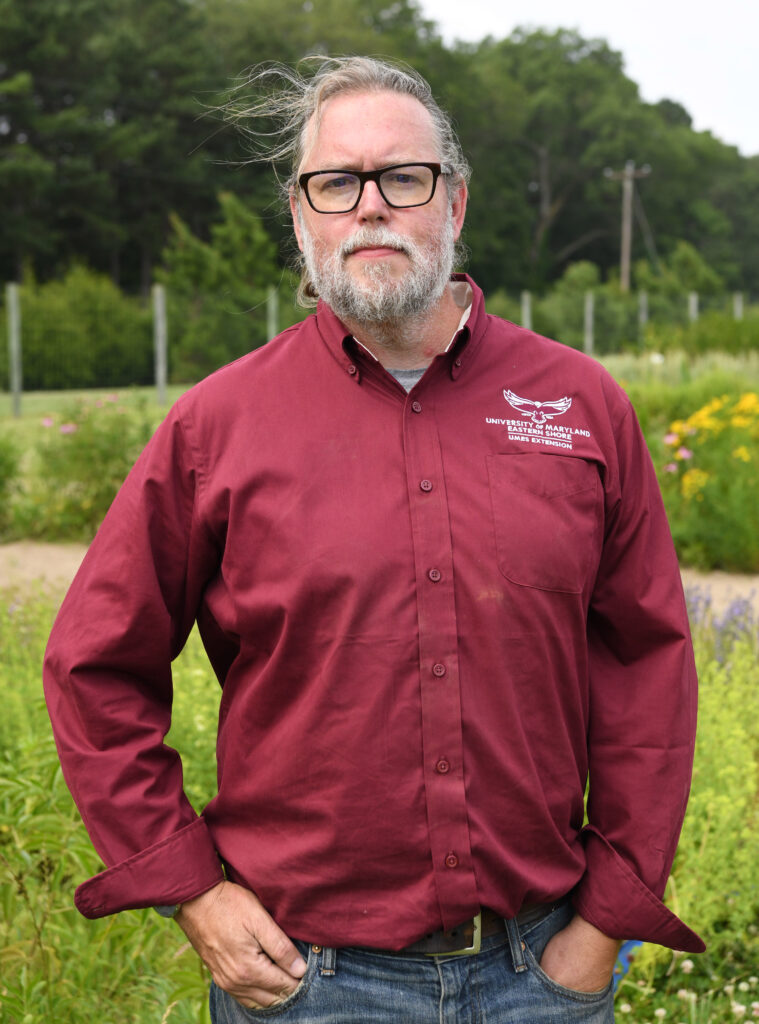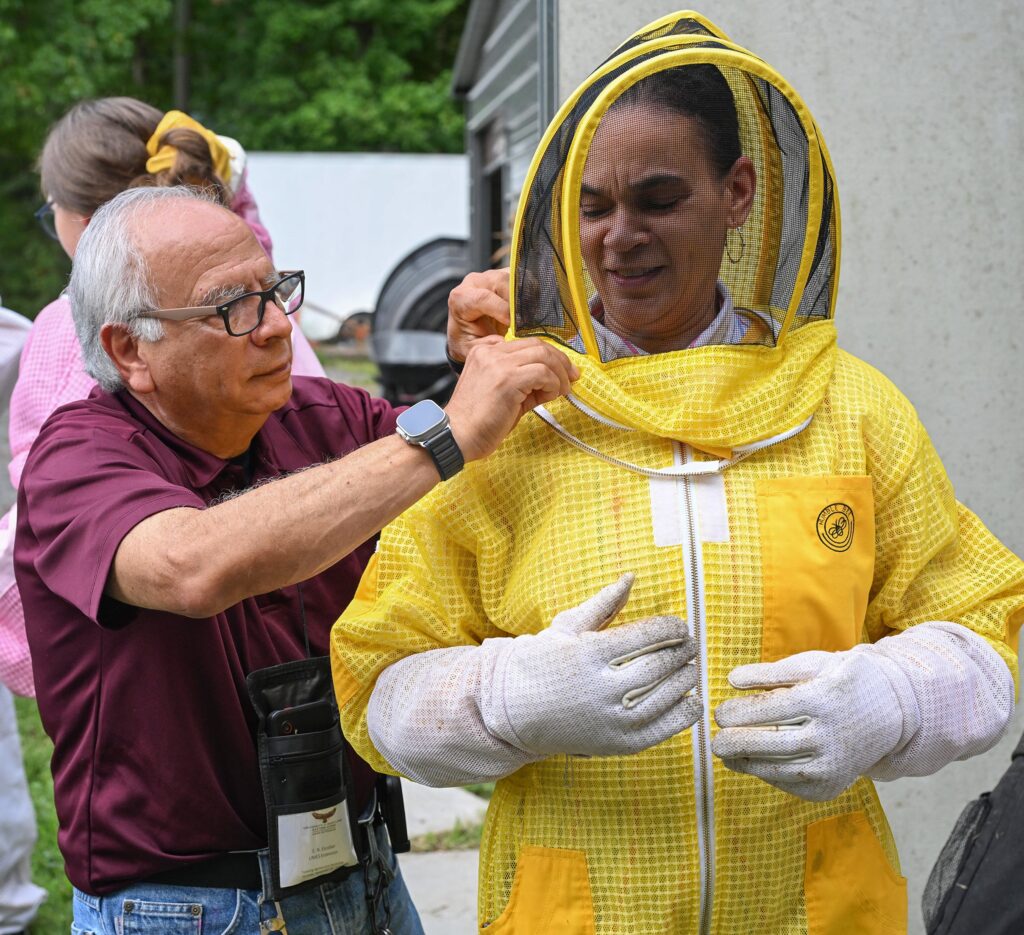
The University of Maryland Eastern Shore rings in the new year with a reimagined Honeybee Keeping/Apiary Program. Beekeeper and program assistant Stephen Goewey (at left) recently joined UMES Extension and is planning a full slate of classes and workshops. Offerings will range from beginners to ones for experienced beekeepers who want to hone their skills managing honeybee colonies.
“UMES Extension is thrilled by this exciting new chapter in 2025,” Goewey said. “Our initial colonies will provide a foundation for educating farmers and the community about the vital role of pollinators in agriculture and the environment. Throughout the year, we’ll offer hands-on workshops covering every stage of beekeeping — from installing the first package, or nuc, to inspecting hives to harvesting honey.”
Looking ahead, there are ambitious plans to expand the program in the second year and beyond, Goewey said. To educate the community, a key initiative will be the creation of pollinator gardens and an apiary park at the UMES Research, Extension and Teaching Farm on Stewart Neck Road in Princess Anne, Maryland. These gardens will serve as living classrooms, “demonstrating the essential relationship between pollinators, biodiversity and food systems.”
“We also aim to broaden our educational outreach to schools and community groups, engaging learners of all ages in interactive programs.”

The planned workshops and hands-on activities will address hive management, pollinator-friendly gardening, habitat creation, marketing and profitability, and meaningful steps participants can take to support pollinator populations.
“Ultimately, the UMES Extension team envisions the Honeybee Keeping/Apiary Program becoming a regional hub for pollinator education and advocacy,” said Dr. E. Nelson Escobar, (at right) associate dean for extension, associate professor and small ruminant specialist at UMES. “We are committed to fostering a deeper connection between people and nature while building a more sustainable and resilient ecosystem for future generations.”
A free beginner’s workshop kicks off the initiative Jan. 25 (sold out!) with the basics of bee biology, hive management and tools needed to care for a healthy colony. Topics to be covered include: setting up a hive, understanding behavior, managing seasonal challenges and harvesting honey.
“Through extension activities like the initial class and by way of collaborations, we hope to inspire a network of beekeepers, gardeners and environmental stewards across the Eastern Shore of Maryland,” Goewey said.
Gail Stephens, agricultural communications, University of Maryland Eastern Shore, School of Agricultural and Natural Sciences, UMES Extension, gcstephens@umes.edu, 410-621-3850.
Photo by Todd Dudek, agricultural communications, University of Maryland Eastern Shore, School of Agricultural and Natural Sciences, UMES Extension, tdudek@umes.edu.

